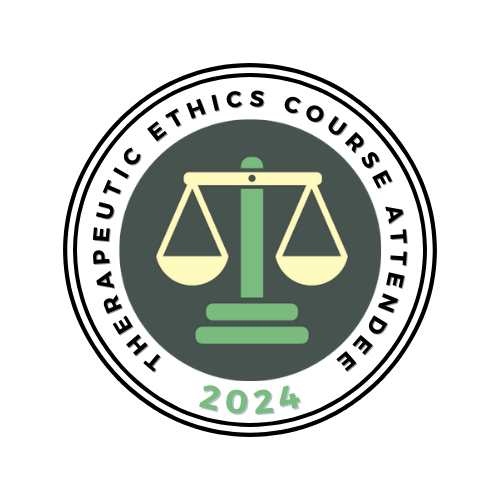Alyson Aviv
Credentials
Finances
- Har Sinai 37, Apt 5
- Raanana, 4330735
Alyson Aviv
 Verified
Verified
Credentials
Clinical Psychologist, Neuropsychologist
PhD, ABPdN
Finances
350-500 NIS
Private Insurance
Lone Soldier Discount
ABOUT THE THERAPIST
I am a bilingual licensed clinical psychologist and the only American board certified pediatric neuropsychologist in Israel and the Middle East. After relocating back to Israel from Saint Louis, MO in 2014, I see local and international patients and their families at my diagnostic and treatment clinic in Raanana. I have extensive experience and expertise in accurate diagnosis of ADHD, learning difficulties, dyslexia, autism spectrum, developmental issues, emotional disorders, behavioral disorders, adjustment difficulties, marital, parenting, and family issues. I strongly believe that in order to provide a personalized treatment plan, accurate assessment is a crucial first step. Using a thorough holistic assessment approach, and the latest up-to-date international assessment measures, I can explain the sources of difficulties, and then provide resources for overcoming them. I am currently the only Israeli provider of COGMED, an evidence based cognitive therapy program for individuals with poor working memory, a common weakness in children and adults who have been diagnosed with ADHD. I have published papers and given a variety of workshops, lectures, and presentations internationally and locally, and consult regularly with educational institutions and organizations. I was recently recognized by my colleagues and have been elected to serve on the board of the American Academy of Pediatric Neuropsychology - the first non-US resident elected to this esteemed board. I am also on the board of GHI. In addition to individual assessment and therapy services, I run various short term psychotherapy groups. I can provide documentation for American Citizens for insurance reimbursement and have much experience providing documentation for international testing accommodations for standardized exams (such as SAT, ACT, and GRE etc.). I look forward to working with you, clarifying the source of difficulties, identifying strengths, and helping to determine a path forward for future happiness and success.
QUALIFICATIONS
PhD
University of Connecticut
1996
ABPdN
Board Certified in Pediatric Neuropsychology
1996
Degree
PhDEducation
University of ConnecticutYear of Graduation
1996Degree
ABPdNEducation
Board Certified in Pediatric NeuropsychologyYear of Graduation
1996Years in Practice
23
Mumche License Number
27-3595
ADDITIONAL CREDENTIALS
Board Certified in Pediatric Neuropsychology (ABPdN)
DISTANCE COUNSELING
Telephone Counseling, Online Therapy
PRIMARY SPECIALTIES
Attention Deficit Hyperactivity Disorder (ADHD)
Learning Disabilities
Psychoeducational Testing
Psychological Assessment
ADDITIONAL SPECIALTIES
Academic
Anxiety / Panic
Autism Spectrum
Behavioral Concerns In Children
Depression
Developmental Disorders
Family Issues
Parenting Issues / Training
Stress Management
Vocational Counseling
CLIENT FOCUS
Population
Children
Adolescents
Adults
Couples
Families
Men
Women
Languages Spoken
Hebrew
English
TREATMENT APPROACH
Cognitive Behavioral Therapy (CBT)Cognitive Behavioral Therapy (CBT) is a type of psychotherapy that focuses on how one's thoughts, feelings and behaviors are connected and can be changed. It is based on the idea that how we think (cognition) and how we feel (emotion) can influence how we behave. CBT helps people identify and challenge distorted thinking and replace it with more balanced thinking, leading to improved mood and behavior. ‘Homework’, usually containing practical writing exercises, is often completed by the client between sessions to reinforce the therapy. Examples of tools that practitioners often use are journaling, challenging beliefs, and mindfulness.
Family Systems TherapyFamily Systems Therapy is an approach to psychotherapy that emphasizes the importance of understanding how the family functions as a whole, and how individual family members interact and affect one another. It focuses on how family dynamics, such as communication patterns, roles, and power dynamics, shape behavior, and how changing these dynamics can lead to positive change. Family Systems Therapy is a collaborative approach, where the therapist works with the family as a whole to identify and address areas of conflict and distress.
Interpersonal Psychotherapy (IPT)IPT focuses on the relationships and interactions an individual has with others. It is based on the premise that the way that we interact with others can have a significant impact on our emotional well-being. During IPT sessions, the practitioner will work with the client to identify patterns of behavior and communication that may be contributing to their emotional distress. They will then help the client learn new ways of interacting with others, as well as teach them coping skills to manage difficult emotions. It is a time-limited therapy, typically lasting between 12-16 weeks, with the goal of helping the client develop long-term coping skills.
Solution-Focused Brief Therapy (SFBT)Solution-focused therapy is a type of therapy that focuses on what is going right in a person’s life, as opposed to what is going wrong. It is based on the premise that when a person can identify what is working, they can build on it and make positive changes to the areas of their life that need improvement. A therapist using this approach will often ask questions designed to bring out a person’s strengths and resources, rather than focusing on problems or past issues. The aim of this type of therapy is to help people find solutions to their current problems, in order to build a better future. A solution-focused therapist encourages those in treatment to develop a vision of the future and offers support and guidance as they determine the skills, resources, and abilities needed to achieve that vision successfully.
Solution Focused, Eclectic
SERVICES OFFERED
Individual Therapy
Clinical Supervision
Coaching
Consultation
Couples Therapy
Family Therapy
Group Therapy
Hadrachat Horim
Workshops/Educating


 Verified
Verified

